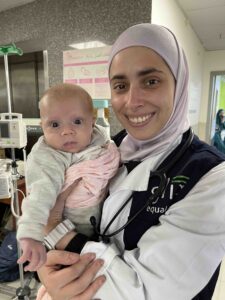A Deeper Look
This platform is intended for those who wish to deepen their understanding of the war in Gaza beyond the report at the core of this website. While the report focuses on recounting facts, the articles provide supplementary analysis of various aspects of the war —historical, sociological, legal, and more—alongside personal reflections. Our aim is to offer critical perspectives on the prevailing public discourse surrounding the Israeli war on Gaza, the West Bank, and Palestinian existence —perspectives that are often absent from mainstream media. The blog has an academic editorial board who reviews and edits the article. You may contact us and propose articles, here: [email protected].
-
On Gaza, Dogs, and Humans
By: On Barak and Irus Braverman; Translated by: Orit SchwartzAugust 24, 2025On Barak and Irus Braverman focus on Gaza’s dogs, and argue that domicide (the destruction of housing and living environments) eliminated the home as the site of what makes us human. The transformation of dogs from friendly household companions to feral animals—reveals what happens when the home is obliterated and the intimate relationships it once contained, including human-animal relationships, are drastically disrupted or eliminated. The transformation of dogs from household to homeless animals has effectively reorganized their relationships with the humans of Gaza, which now center around anxieties over bodily integrity, competition for food, and profound loss: dogs have been documented feeding on human remains, prompting Palestinian children to plead with their companion species not to devour their bodies if they die. Beyond massive destruction of infrastructure, Israel’s domicide in Gaza is an assault on the very foundations of what it means to be a Palestinian human.
-

Alone and at Risk: The Unseen Crisis of Unaccompanied Children in Gaza
By: Dr. Shulamit PinchoverAugust 12, 2025Many children in Gaza are alone. Often orphaned, forcibly separated, or left behind, they are living without the care of any adult legally or customarily responsible for them. In overcrowded shelters, hospitals, or makeshift camps, they face an acute risk of abuse, neglect, sexual exploitation, child labor, trafficking, and prolonged psychological trauma.
-

Genocide in Gaza?
By: Shmuel Lederman. Translated by: Orit SchwartzAugust 5, 2025Over the last year, a broad consensus has emerged among scholars that Israel’s actions in Gaza constitute genocide. However, when discussing the definition of genocide, a distinction must be made between two different types of discourse: legal and scholarly. Since the authoritative definition of genocide in international discourse is the legal definition, much of the discussion focuses on the extent to which Israel's actions meet the legal definition of genocide in the 1948 UN Convention on the Prevention and Punishment of the Crime of Genocide.